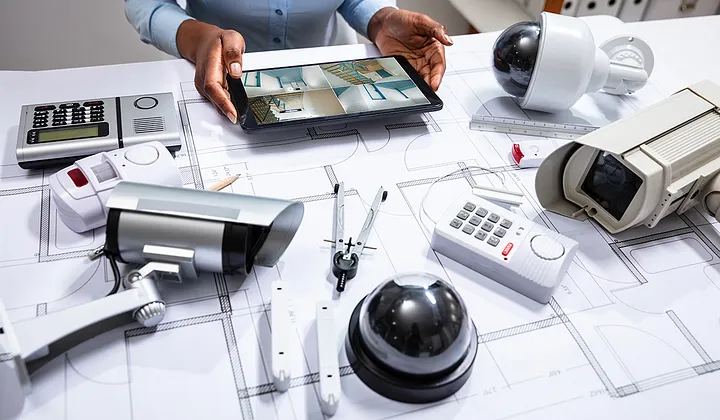Importance Of Security System Maintenance Contracts

In an era characterized by technological refinements and increased reliance on sophisticated security systems, the importance of maintaining these systems at their optimal functionality cannot be overstated. Security system maintenance contracts play a pivotal role in ensuring that surveillance, access control, and alarm systems operate seamlessly, providing a robust defense against potential threats. This essay explores the significance of security system maintenance contracts in safeguarding assets and ensuring operational continuity.
Preservation of System Integrity
Security systems are intricate networks of hardware and software components designed to work in tandem. Regular maintenance, facilitated by contracts, ensures that each component is functioning as intended. It preserves the integrity of the system, preventing vulnerabilities that malicious actors could exploit.
Prevention of System Deterioration
Over time, wear and tear are inevitable for any technological infrastructure. Maintenance contracts proactively address this challenge by scheduling routine inspections, updates, and replacements as needed. By preventing system deterioration, these contracts extend the lifespan of security systems and save organizations from costly emergency repairs or replacements.
Ensuring Regulatory Compliance
Many firms are subject to strict security regulations and standards. Security system maintenance contracts often include compliance checks and updates to ensure that the systems meet the latest regulatory requirements. It not only helps organizations avoid legal repercussions but also enhances their overall security posture.
Reduction of Downtime
Unforeseen breakdowns can lead to significant downtime, leaving assets vulnerable and compromising operational efficiency. Maintenance contracts include regular check-ups and troubleshooting, reducing the likelihood of unexpected failures. This proactive approach minimizes downtime and contributes to the continuous functioning of security systems.
Adaptation to Technological Advances
The field of security technology evolves rapidly. Maintenance contracts provide a framework for incorporating technological advancements into existing systems. Regular updates and upgrades ensure that security measures stay ahead of emerging threats, making it more challenging for potential breaches to occur.
Cost-Effective Solutions
While the initial investment in security alarm systems can be substantial, maintenance contracts offer a cost-effective approach to long-term security. The regularity of scheduled maintenance allows organizations to plan and budget for upkeep, avoiding the financial burden of unexpected repairs or system failures.
Enhanced Response to Emergencies
Security system maintenance contracts often include provisions for emergency support. In the event of a system failure or security breach, having a dedicated maintenance team can significantly reduce response times. This swift response is critical in mitigating potential damage and ensuring a rapid return to normal operations.
Protection of Sensitive Information
Security systems are designed to protect sensitive information and assets. Maintenance contracts play a vital role in maintaining the confidentiality and integrity of these systems. Regular checks and updates ensure that security measures remain effective, preventing unauthorized access and data breaches.
Peace of Mind for Stakeholders
Stakeholders, whether they are business owners, facility managers, or residents, benefit from the peace of mind that comes with knowing their security systems are well-maintained. This confidence is essential in fostering a sense of security and trust in the effectiveness of the deployed security measures.
Long-Term Relationship Building
Establishing maintenance contracts creates a long-term relationship between organizations and service providers. This relationship fosters a deep understanding of the specific security needs and challenges faced by the client, allowing for tailored solutions and efficient problem-solving.
Conclusion
In conclusion, security system maintenance contracts are indispensable in the contemporary landscape of heightened security threats and technological complexities. By preserving system integrity, preventing deterioration, ensuring regulatory compliance, reducing downtime, adapting to technological advances, providing cost-effective solutions, enhancing emergency response, protecting sensitive information, and offering peace of mind to stakeholders, these contracts contribute significantly to the overall security and operational continuity of organizations. Recognizing the importance of such contracts is not only a prudent business decision but also a crucial step toward building a resilient defense against evolving security challenges.
